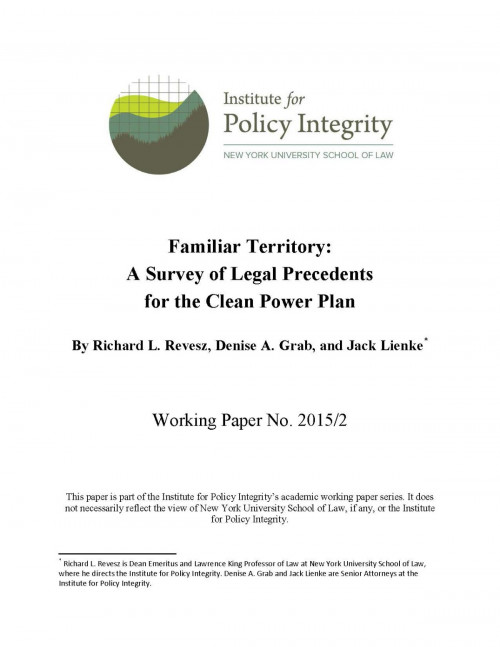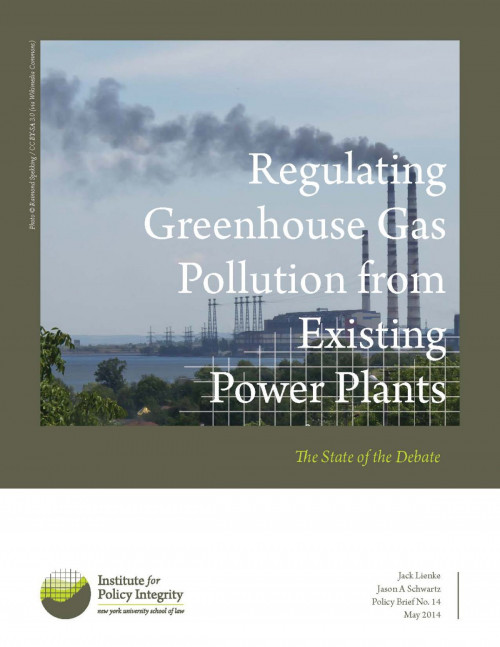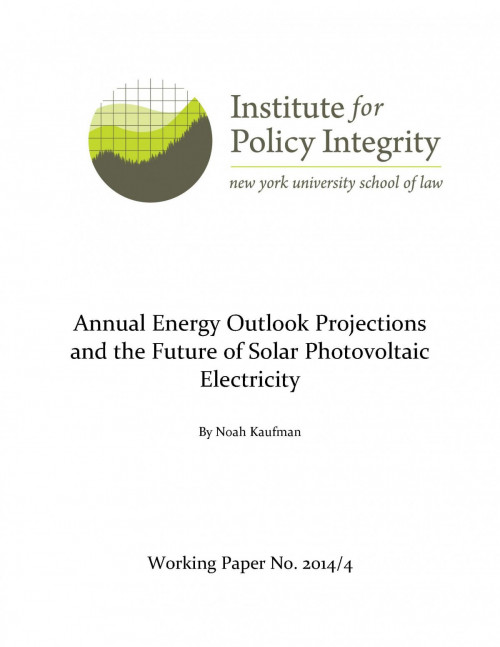-

Familiar Territory
A Survey of Legal Precedents for the Clean Power Plan
In this essay, we highlight a wide variety of regulations from the Clean Air Act’s forty-five-year history that provide substantial precedent for the flexible design of the Clean Power Plan.
-
Comments on New York State Energy Policy
We recently submitted comments on New York State’s Reforming the Energy Vision (REV) initiative
-
Revesz Testifies at House Hearing on Clean Power Plan
Richard Revesz testified at today’s House Energy & Commerce Committee hearing, “EPA’s CO2 Regulations for New and Existing Power Plants: Legal Perspectives.”
-
Comments on New York State’s “Reforming the Energy Vision” Initiative
We recently submitted comments to the New York State Public Service Commission regarding the Reforming the Energy Vision (REV) initiative, which seeks to spur clean energy innovation and improve consumer choice and affordability in New York State. The Commission sought comments on how best to develop a cost-benefit analysis framework to evaluate utility proposals within the REV and related proceedings. Our comments addressed the consideration of externalities and the social cost of carbon in the Commission’s cost-benefit analysis.
-
Court Rejects Initial Challenges to Clean Power Plan
Today, the U.S. Court of Appeals for the D.C. Circuit dismissed the first challenges to President Obama’s signature climate change initiative—the EPA’s Clean Power Plan. In the ruling, the judges said they would not take the unprecedented step of blocking the EPA’s regulation before a final rule has even been issued.
-
Public Comments on Net Metering in Wisconsin
Wisconsin is one of more than 40 states with a “net metering” law that allows solar-powered households to sell some of the electricity they generate back into the grid for a fixed price. The Wisconsin Electric Power Company and Wisconsin Gas LLC recently proposed changes to their net metering rates, arguing in part that the rates force them to fund additional grid maintenance and modernization without appropriate compensation. However, the current rates also do not account for the climate and public health benefits from distributed solar generation.
-
EPA Proposes Power Plant Regulations
The centerpiece of the Obama Administration’s effort to address climate change through executive action is now a known quantity with the release of the EPA’s proposed carbon pollution guidelines for existing power plants. The rule, pursuant to Section 111(d) of the Clean Air Act, would cut carbon pollution from power plants 30 percent from 2005 levels by 2030 and allow states to use flexible approaches to meet this target.
-

Regulating Greenhouse Gas Pollution from Existing Power Plants
The State of the Debate
Environmentalists, industry groups, and state governments have been vocal regarding their preferences for the shape of EPA’s forthcoming rule on greenhouse gas pollution from existing power plants. In this policy brief, Jack Lienke and Jason Schwartz survey 30 public letters, white papers, presentations, and reports from these stakeholders and outline their positions.
-
Comments Submitted to EPA on Proposed Emissions Standards for New Power Plants
Policy Integrity submitted comments to the Environmental Protection Agency on its proposed performance standards for greenhouse gas emissions from new power plants. To help maximize the net benefits of the proposed standards and to ensure their solid legal foundation, Policy Integrity made the following recommendations:
-

Annual Energy Outlook Projections and the Future of Solar PV Electricity
The topic of this paper is the assumed growth of solar photovoltaic (PV) in current energy models, with a focus on information from Annual Energy Outlook (AEO) of the U.S. Energy Information Administration (EIA). EIA resolves the difficulty of modeling solar energy into the future by assuming its current growth will not continue. However, EIA’s assumptions on the future costs of solar PV are highly pessimistic, and its methodology would appear to bias its “Reference Case” projections toward lower growth of solar energy. Sure enough, past AEOs have systematically underestimated the future growth of solar PV. Energy modelers therefore may need to adjust the AEO forecast in order to reflect a most likely baseline trajectory for solar PV.
Viewing recent projects in Electricity
